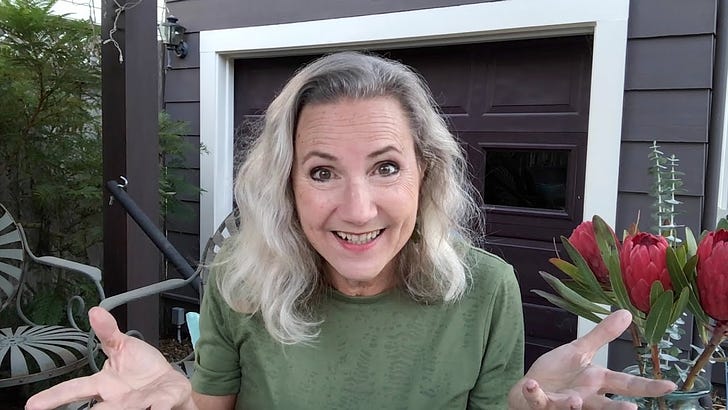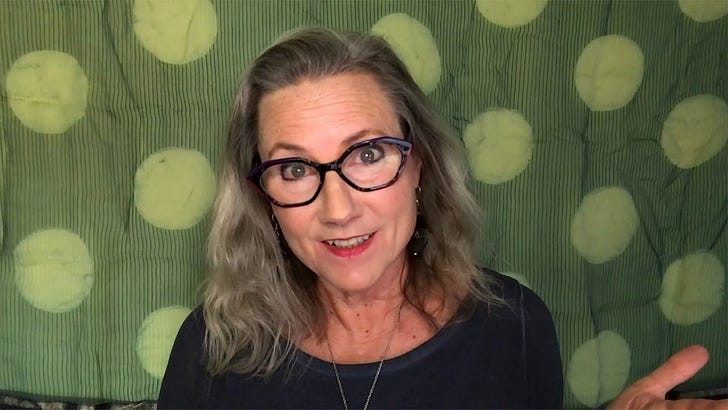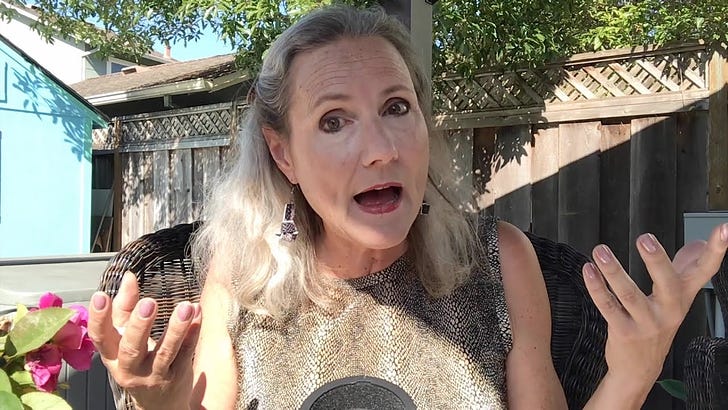One of my favorite writers, Kathleen Devanney, posted a provocative article on Faith and Religion:
Kathleen’s article was taken from an outline she’d drafted for a book called Freeing God from Religion. I hope to read that someday! My response is from my draft of a book called A House for the Soul in the Land Beyond Faith. I think there’s great correspondence between our ideas, and I’d like to continue that conversation here.
I always start by defining terms. Words, especially for abstract concepts, are fossilized metaphors. For them to have meaning, they need to point back to the concept. One of the ways that our thinking has been disabled is by stealing the meaning of words like sovereignty, so we have no word to discuss that important concept.
Nefahotep and I have been talking about wealth and money. Although we define the terms differently, I have no doubt we share the same goal. There’s no ‘right’ or ‘wrong’ definition, although I think etymology trumps all—the first word is the last word on the meaning, the author is the authority. But for communication, one person needs to understand the concept the other means when they use a word or translate it into one that means the same to them.
Likewise, Kathleen and I define faith and religion differently but I know we share the same goal. To attempt to define that, it might be increasing knowledge and awareness of the divine as something that unifies rather than dividing us. Kathleen writes about faith as having a primary aspect, which is its intuited form, and a secondary aspect, which is its content or expression:
The primary or intuited aspect is universal. Faith here is an inner acknowledgement of connection to what animates us and gave us life.
The secondary or expressive aspect refers to the many forms that essential intuition can take in the world.
These two aspects mean that while we may all intuit the divine as essence—which is unifying—we can still maintain many disagreements at its secondary and expressive aspect.
Religion is not faith even though we’ve merged them in many cases.
Religions are expressions of faith. Often, instead of unifying us in that shared intuition of a unifying Source, they dismantle and separate us in the name of God.
Beautifully put. In A House for the Soul in the Land Beyond Faith, I define faith as making up your mind in advance of experience, facts or logic. Believing is a block to knowledge because it doesn’t allow for conflicting possibilities. Dogma is what you refuse to raise to question.
What religion should be is a forum for asking the Big Questions. But that doesn’t exist. I’ve looked. Instead, religions are doctrines of answers given by authorities.
What are the Big Questions? The first and most essential is: What is my true relationship to you? Is it hierarchical or is it equal? Everything follows from that answer.
If it’s hierarchical, then I have all of the major religions to choose from that are each cults of superiority. But if it’s equal, I have to reject those religions because they kick my dogma. And my only dogma is that I’m no better than you.
All cults of superiority, whether they include a billion people or two, operate by the same technique that can be seen in the spiritual pick-up artist from To Love Me is to Know Me. His first approach was flattery with a long list of affirmations, until I questioned his equally long list of brags. When the mutual admiration bubble was popped, it turned to insults, threats and guilt-mongering.
In religion, the deal is the same. You acknowledge the priest or rabbi’s authority over you and in return, they give you superiority to all of those outsiders. That superiority has made Judaism morally bankrupt in the killing of 20,000 Palestinians who were outside their moral code. And superiority made Christianity morally bankrupt in the Crusades, the Inquisition, slavery, colonization, and world domination by the ‘Holy Roman Empire’, three words that are mutually exclusive.
What Kathleen calls faith, A Course in Miracles would call revelation. It’s an intensely personal experience of the divine that gives courage and conviction. It doesn’t last but you remember that you felt it. It’s not interpersonal and can’t be communicated or transferred.
The interpersonal side the Course calls the miracle. It’s a recognition that we’re all connected and things aren’t what they seem. In my experience, they’re not about what happens but how. And in particular, the timing of things that just makes it obvious that this can’t be accidental.
From Joe Riley’s poetry listserv, Panhala:
The meaning of life is to see.
~ Hui Neng
I’ve had a couple of experiences of revelation, particularly at a Big Sur hermitage that had been my vortex, a place that seemed like time slowed down but revelation jumped spirals. One time when my daughters were young, I placed photos of them in an alcove with a votive candle. I asked for a sign and suddenly, all the photos curled and cascaded to the ground!
This seemed like an ominous sign, on top of feeling guilty about taking time away from them for myself. I explained it away as the candle creating a heat vacuum in the alcove, but who knows?
Another time I was reading Martin Buber’s I and Thou, and decided to say “Thou” as deeply as I could to the ocean below. Suddenly, it froze, mid-spray against a rock. It stayed there long minutes as I held it, and I found I could release it and freeze it again.
When I later drove down off the mountain, I had the conviction that I could have driven straight off the cliff and it would have been fine. But everyone I’ve told that to has exclaimed, “I’m so glad you didn’t!” That conviction can’t be shared.
Some interpret my statement that I don’t believe in God as saying I believe God doesn’t exist. On the contrary. The existence of God isn’t my dogma but neither is the existence of the world.
If I believe dogmatically in the world, I have to reverse engineer my concept of God to fit a God who created this world, who could and has intervened but doesn’t now.
Letting go of the dogma that I exist separate from you, and therefore the world must exist outside of us, is the only way in which a God could exist who isn’t unethical and immoral. God can’t intervene because this is our dream, not reality.
If this is our dream, all God can do, through Spirit, is influence the circumstances and the timing. The dream needs to run its Course until we change it because we’re willing to wake up.
When I told Ratio Broadbornius that I didn’t believe in evil because it kicked my dogma that I was no better than anyone else, he asked how it felt to be kicked in the dogma. I told him that I chose my dogma consciously at the dogma pound, it wasn’t a part of my identity that I was born with ;-)
Everyone needs a dogma but don’t let your dogma choose you. Decide what you’re not willing to raise to question. Own your dogma and name it. It will be your guard dogma against flattery, insults and psyops that try to trick you into shared superiority.
Religion doesn’t need a God in order to project superiority; survival of the fittest is an atheist dogma. One psyops can’t be replaced with another psyops. In my critique of Judaism, I’ve had some enthusiastic supporters who wanted to show the superiority of Christianity. And one friend willing to trash both who wasn’t happy when I kicked his dogma of Buddhism and his favorite teacher.
I think that you need to be consistent. If we are all equal, we’re critiquing ideas, not people. And none of us has the answers. We need that forum for asking the Big Questions and comparing answers. We’re all running our own experiments in reality. But as soon as someone assumes the role of teacher, I think it defeats the purpose.
In order to build our house for the soul in the land beyond faith, we do need community where we’re asking the questions together. Wherever two or more are joined in the name of an honest question, truth is there. Here on Substack, I think we have that community around questions like:
What really happened in the World Wars?
Is Russell Brand or Robert Malone a fake?
How do we get out of this mess?
Who’s ultimately in charge?
What really happened in Lahaina? Ukraine? Israel?
What’s that strange iridescence in the sky?
Is there purpose and meaning in life?
How many layers down does the psyops go?
None of us have those answers but the progress we make together forms a vortex, a truth cyclone, where cycles are accelerated and we all spiral up in our knowledge.
The only basis for judging those answers is whether we’re thinking in the small way of superiority, that it’s not possible to save everyone, so the only thing that’s going to save me is being better than someone else.
We can ONLY save everybody. Let’s do that!
More on myths of superiority in religion, politics and mass formation citing Tessa Lena, Jack Sirius, Joe Atwill, Jim Reagan, John Waters, Robert Malone, Scott Adams and Guttermouth! Topics include gnosticism, God the monster, Darwin the snob, hatchet jobs and backhanded apologies:
and inspired by The Ministry of Truthiness recommending my book, I explore the need for mysticism in economics. We're in a liminal space between the way things have been and the way they could be. We're the scriptwriters who can bring the world over the threshold, like a bride, into a new reality:








This is an excellent post, very important one too. I appreciate your approach to addressing Religion. In fact, in a major way, it's helpful to show the distinction between what a Religion is and does as opposed to the inner experience of "God," which is personal.
Religion is a centralization and specification of what God is, in order to make access to God an exclusive privilege to the few. It's effectively been a tool for establishing and maintaining Power Hierarchies, in the past. In order to provide rational for Religion, it was always necessary to diminish Spiritual Life to just what was possible through the Religion; anything else was heretical. By making everyone dependent on the church for access to God, the Elites gained power.
Once the Elites could control both God and Money, they could have control over the people and their country.
Money is an important social and economic component of control, I will be looking forward to studying in your book.
I'll be an open minded student, ------------ I promise. ;-)
Whoa! I was just heading to bed and reposting my comment from the first YouTube at the top of the page, and now wishing I was doing this in the morning so that I can take a more thoughtful dive down this rabbit hole. Will have to explore the entire post about 8 or 10 hours from now, Japan time. In the meanwhile, here is my original comment, appended with one more sentence ... though I thought of some other things to add to the dialogue later.
————————
Original comment:
Hi Tereza. Long time no chat. Still spending more time chasing the tail of the Lahaina massacre.
I also read and marked Kathleen's substack for further contemplation.
Reminded me of past readings of Joseph Campbell and Karen Armstrong ... as do you.
I like your definition of revelation as it matches my own ... what some have called transcendent or mystic experiences which informs the more secular / transactional majority of our time.
This is probably old news for you, so I am just yapping to myself here ... but I've found that defining terms is both important, and problematic. For example, the words 'god" or 'knowledge" are also among "all words (as) fossilized metaphors." — a very powerful insight I agree with. In that respect, we both seem to be aware of the god of Spinoza, Emerson, and Einstein ... 'spiritual naturalism' being one metaphor I have depended on in the past. I guess the reason I don't use that term so much now is because of that old Kierkegaardian paradox of the lonely traveler, after many years of searching, finally comes upon a sign of humanity ... a street sign pointing to "Truth ... 10 miles, thataway", who then embraces the street sign with the proclamation of having found the truth, and there the journey ends.
This creates the problem of how to expound or converse while fully aware that one's own discourse is ultimately limited by its own provisional literality. For example, your (our) definition of knowledge does not seem to be so different from Kathleen's definition of faith ... "The essence of faith is ultimately mysterious and individually accessed. There is nothing to criticize here. This is not where the problem of faith resides." Maybe 'faith' and 'knowledge' are two metaphors for the same experience?
Ha. Maybe this is the biggest reason I so admire the call and response of improvisational musicians. I remember a famous anecdote where during a performance, Herbie Hancock hit what he just knew was a clunker ... and Miles just listened, and responded with something that made it 'right'. Whoa. The zen of jazz.
Cheers Tereza ... back to my raking through the ashes of Lahaina, hoping to make a house, "Body and Soul" 🤣
https://www.youtube.com/watch?v=_OFMkCeP6ok ... oh wow, Amy sounds like such a good cross between Betty Carter and Billie Holiday ... a good metaphor for a collaboration between you and Kathleen.
steve
————————
Addendum: What I meant by referring to the god of Spinoza, Emerson, and Einstein is "god" as a metaphor for nature-in-its-entirety. I REALLY identify with your position regarding "all words (as) fossilized metaphors" ... both from a studied limits-of-logic position (Wittgenstein's Ladder, Sapir-Worf Hypothesis, Gödel's Incompleteness Theorem, Emergence/Fractal theory, traditional writings about 'mystic' traditions, etc.) ... and rare, but informative, personal experience. Won't go into those personal experiences for now, but to be so few, they dovetail well with a triangulation of my readings, and form the foundation for my values and most of my 'big choice' conscious behavior.
One reason I have avoided laying out my definitions of "god" or "love" literally, is because so many of us are busy, struggling against the sociopaths running this circus. If words, (language) are ultimately frozen metaphor, trying to pin down my definitions by breathing life back into language becomes a zero-sum game. While we of good faith are trying to get our words in sync with our hearts, and then in sync with the hearts of each other ... the sociopaths, unhindered by empathy, shame, or remorse ... have burned down another Lahaina, rolled out another war, boiled up another vat of snake-oil. Those of good faith, though separated by circumstance of language and culture, are further separated by sociopathic divide-and-conquer strategies, and will always be caught in a rear-guard action, a day late and a dollar short in trying to second guess what the parasitic predators have long since been planning.
As limited and potentially dangerous as Facebook is, I am in several groups that have at least some individuals desperately trying to point out the world-wide sociopathy and spread Platonic ideals. But those who have matured, have done so within the potential and the constraints of their culture ... and many haven't found or needed the capacity to transcend their immediate social context ... or see the world in a grain of sand. Many are better able to fight the good fight from within the shield and comfort of their traditions, their frozen metaphors. I am often humbled and in awe at the specialist, technical skills a comfortable social context has allowed some to see through the sometimes sophisticated lies foisted upon us. Most of the time, rather than ask for a "time out" from the battle so that we can unpack the definitions of our fundamental values, I try to read between the lines, sift through frozen metaphors (mine and theirs) for the shields and spears that I can pass to others.
I am guessing we are able to discuss such things this far because we share so much in common.
Our language is so in sync. But I sometimes imagine a path not chosen on how to use my remaining time, capabilities, and resources ... burying myself in a mountain of metaphor, the fine arts, and whittle it all down to a grain of sand in an attempt to sway the battle at the subconscious level. Alas, in this era of algorithms churning big data into daily news feeds, even if I managed to finally carve out my grain of sand, I wonder how many ... or more importantly 'who', would see the world in it?
If. Ha. The biggest word in the English language. If it weren't way past my bedtime, I would drone on and on, and probably without realizing that you've already covered most of this ground in what I have yet to read. 😂
Will dig into your post after the morning's coffee, but it might take a while to respond. Got a doctor's appointment tomorrow, followed by a family English class.
G'night from Japan Tereza.